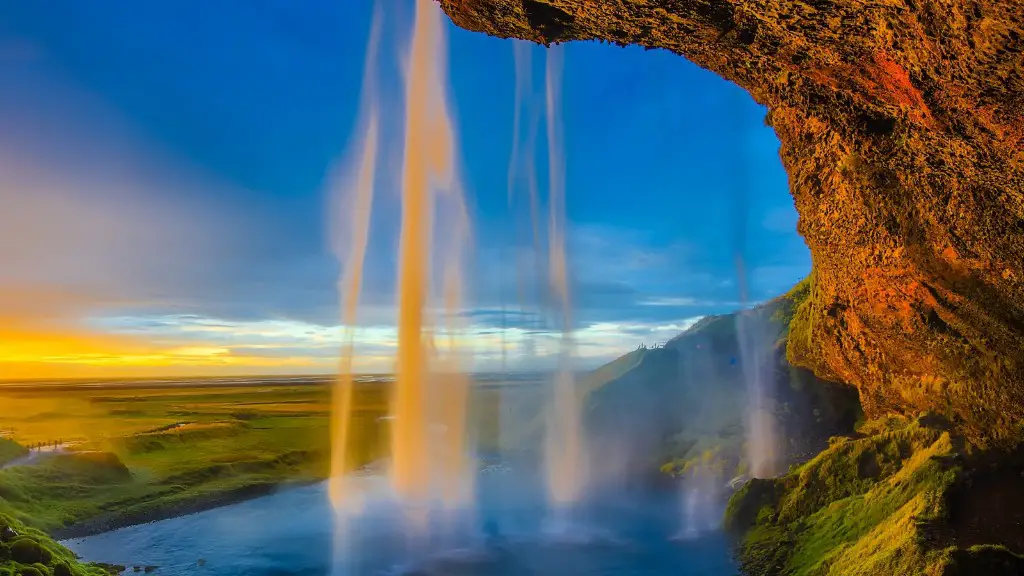Background Information
For over 5,000 years, the Nile River has been a vital source of life and prosperity for Ancient Egypt. This river served as a source of food, transportation, commerce, and protection from foreign entities. Ancient Egypt was the first among many civilizations to develop along its banks, giving rise to one of the most influential and powerful civilizations of all time. Ancient Egypt is known for its pharaohs, hieroglyphs, monuments, and its political and religious influence. It is believed that the first Pharaoh was Menes, who united Egypt around 3,500 BC. As the years passed, Egypt developed its own complex social, political, and religious institutions, many of which have become staples in world history and culture.
Notable Developments
Throughout its existence, Ancient Egypt has made many significant contributions to the world. The first known writing system, hieroglyphic scripts, was developed in Egypt and spread throughout the Mediterranean. The Egyptians also developed their own numeral system and calendar during this era. This calendar was one of the most accurate calendar systems of the time, and was used by many other civilizations in Ancient Greece, Rome, and India.
Additionally, Ancient Egypt was the first civilization to develop large-scale public works projects. This included the construction of dams, canals, and irrigation systems. These projects served to protect crops and communities in areas which were prone to floods and droughts. Ancient Egypt also developed the first form of organized medicine, known as the art of medicine, which featured specialized texts and medicines used to treat a plethora of illnesses.
Importance of the Nile River
The Nile River played an important role in the development of Ancient Egypt. This river provided fertile soil for agriculture, which allowed Egypt to become the breadbasket of the region. It also served as a major form of transportation, allowing goods to be transported from one kingdom to another. The river also provided protection from foreign invaders, as it was difficult to cross and provided a natural barrier. As a result, many civilizations and kingdoms sprung up along its banks.
The Nile was also important for religion. The Ancient Egyptians believed the flood waters of the Nile were associated with fertility, renewal, and the afterlife. It was believed that by worshipping the river, they would be blessed with a good harvest or safe passage to the afterlife. As a result, the Ancient Egyptian gods were often associated with the river, and it formed an important part of their religious beliefs.
Economy and Trade
The Nile also contributed to the growth of the economy in Ancient Egypt. As goods were transported up and down the river, cities began to form and develop along its banks. These cities were hubs of trade, where goods from all over the world were exchanged. Evidence of this trade can be seen in the wide variety of artifacts and remains found in Ancient Egyptian burial sites.
The Ancient Egyptians also used the Nile to their advantage in their battles. The river provided a natural barrier against invading forces and was difficult to cross. It is believed that the Egyptians used their mastery of the river to their advantage in their many battles against their neighbours. This allowed the Egyptians to expand their power and influence, and their control over their neighbours.
Influence and Legacy
The legacy of Ancient Egypt is still felt to this day, as it was one of the most influential civilizations of all time. The Ancient Egyptians created many of the ancient advancements and technologies which are still in use today, such as irrigation systems, writing systems, and medicines. Additionally, their influence on the religions of the region is still seen in many of the modern religious practices, such as those found in Christianity, Judaism, Hinduism, and Islam.
Many of the monuments and archaeological sites from Ancient Egypt have become some of the most visited sites in the world, attracting tourists from all over the world. The pyramids of Giza and the Great Sphinx are two of the most famous monuments, and are among the most photographed sites in the world.
Archaeological Discoveries
As the years passed, many archaeological discoveries have been made in Ancient Egypt, giving us a better understanding of the civilization and its legacy. Archaeologists have uncovered everything from tools and weapons to art, jewelry, and mummies. Studies of these artifacts and remains have helped us to better understand how the Ancient Egyptians lived, their advancements in the sciences and technologies, and their belief systems.
Over the past few decades, archaeological expeditions have revealed many ancient tombs and monuments in the form of temples, pyramids, and other structures. These discoveries have helped us to further our understanding of the Ancient Egyptians and the legacy that they left behind.
Conclusion
In conclusion, it is clear that the Nile River played a major role in the development of the Ancient Egyptians. This river provided food, transportation, commerce, protection, and spiritual renewal for this world-renowned civilization. As a result, Ancient Egypt became one of the most powerful and influential civilizations of the ancient world, influencing many aspects of our modern society. To this day, the legacy of Ancient Egypt is still seen through its monuments, archaeological discoveries, and religious practices.

